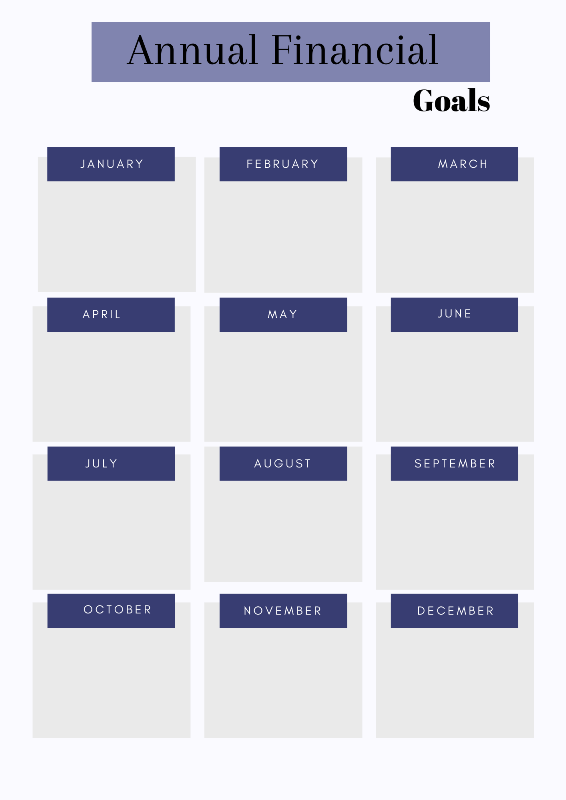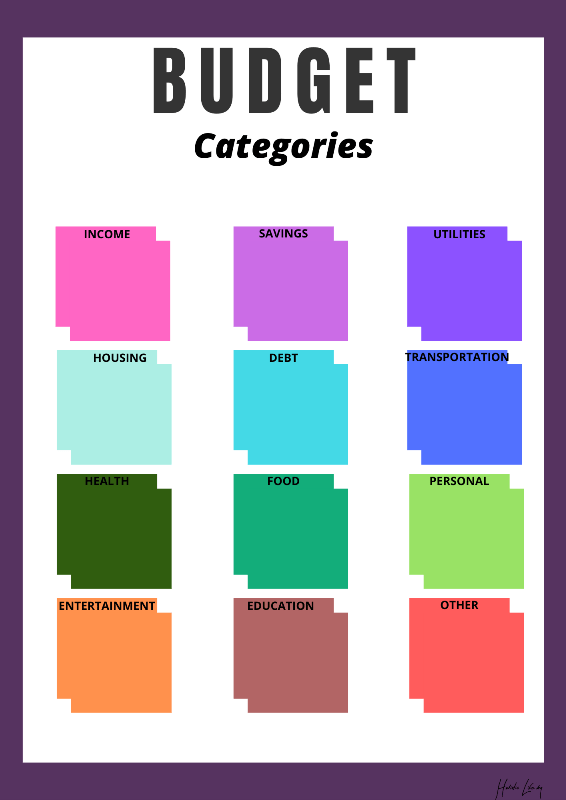Table of Contents
10 Habits For Financial Stability And Success
What separates those who achieve financial freedom from those who only dream about it? The level of income, the type of work they perform, the knowledge they possess, their expertise, their luck? Or maybe wealthy people just happen to be born into a rich family?
None of these answers is correct. Because if you think that people who managed to reach financial freedom are only those who were born in a rich family you’re probably never heard about those who building wealth from the ground up.
So what is the answer? Well, if you ask me, I think that people who achieve financial freedom are those who adopted and master the mindset of financial freedom. It’s the way you think about success and money that determines your standard of living and the quality of your life.
Everything starts with the right mindset. Then you need to adopt the right habits, plan for success and take intentional action to actually achieve what you want to achieve.
Highly successful and financially-free people know that success is not something you obtain overnight without much effort. Success is not a coincidence but the result of hard work, continuous effort, enormous sacrifice, persistence and unwavering self-belief in one’s ability to achieve their goals.
So if your goal is to achieve the financial freedom you need to start working towards this goal and make it happen. And to help you with that here are 10 powerful habits for financial freedom and success.

“More important than the how we achieve financial freedom, is the why. Find your reasons why you want to be free and wealthy.”
1. Evaluate Your Current Financial Situation
The first step in becoming financially stable is to evaluate your current financial situation. Because without knowing exactly where you stand with your personal finances, you will not be able to create a successful budget, set realistic financial goals and stay fully committed and inspired to achieve them.
However, you should know that, if you’ve never analyzed your financial health before it may cost you a little bit of stress but trust me, it is well worth the time and effort. This simple act of evaluating your current financial situation will help you to understand what has to be done in order to reach financial freedom you’ve been dreaming of so much. So take a piece of paper and write down your biggest financial sources of stress so you know what you’re up against. Then calculate your total monthly income and expenses. If you have a mortgage, student loan or credit debt don’t forget to add it to your financial review. And remember that if you’re currently struggling with your finances that’s OK.
We are all faced with financial challenges at some point in our life. But fortunately, most of the financial problems can be solved with some effective planning and strategic preparation. So, if your current financial situation is not the best one, don’t beat yourself up. Instead, adopt a positive mindset, prepare for some great tips and start your journey towards financial freedom!
“To become financially independent you must turn part of your income into capital; turn capital into enterprise; turn enterprise into profit; turn a profit into an investment, and turn an investment into financial independence.”
2. Invest In Your Future
The modern monetary theory taught in Universities all around the globe, strongly advocated that inflation is necessary for economic growth. And whether we like it or not, this is how modern financial markets work. That’s why if you want to protect yourself against inflation and maintain the same standard of living you need to start investing your money. Otherwise, rising inflation will decrease the purchasing power of money.
Before COVID-19 keeping your money in a savings account to earn a compound interest was quite a good idea but now, when banks offer near-zero interest rates it doesn’t pay off anymore. That’s why those who want to keep their money from losing purchasing power invest in hard assets to boost your security in difficult times. Of course, this is not investment advice but an encouragement to think about the current economic situation and plan your economic future. And if you need some help with that I highly recommend you find the right financial advisor that will suggest you smart ways to grow your money so that you can sleep peacefully.
“Your economic security does not lie in your job; it lies in your own power to produce—to think, to learn, to create, to adapt. That’s true financial independence. It’s not having wealth; it’s having the power to produce wealth.”
3. Plan Your Wealth
Money can’t buy happiness but they can buy financial freedom and open door to opportunities you didn’t have before. For instance, if you’re struggling financially you cannot afford the highest-ranked University even if you’ve got accepted, you’re not able to travel abroad and see the most beautiful sights for yourself, you cannot improve your healthy eating habits by adding more organic food products into your diet and you cannot afford major medical insurance. All of these “can’t” causes a lot of stress, anxiety and worry. That’s why it is so important to take care of financial health and start building your future wealth right now.
The economic chaos caused by the coronavirus pandemic forces us to focus more on our financial situation. None of us can predict how long it will take for the economy to recover after the Pandemic that’s why planning your wealth and focusing on developing habits for financial stability should be one of your top priorities. Because whether we like it or not, our whole future depends on the financial decisions we take right now.
“A good financial plan is a road map that shows us exactly how the choices we make today will affect our future.”
4. Set Financial Goals
The secret of reaching financial freedom lies in the clarity of vision and well-defined financial goals. Having a clear destination in sigh will not only help you to choose the right path but it will also help you to keep your internal motivation high even on those days when you’re not “feeling it.”
Once you have a clear mental picture of your financial future, it’s time to set clear goals that will help you to turn your vision into reality. In other words, you need to identify milestones that mark your journey towards financial freedom. These milestones are nothing but the long- term effects of short-term achievements.
This process of setting clear financial goals will not only help you to refocus on what’s truly important but it will also help you to regain full control over your financial life. Not to mention that knowing what you want to achieve in life will drastically increase your willpower and determination so much needed by everyone who wants to achieve financial freedom.
Setting clear financial goals means taking full responsibility for your financial life and being mentally prepared to challenge yourself in order to achieve desired results. Ready to master your money and get on the track to financial independence and freedom? If your answer is yes, grab your free worksheet below, plan your financial goals and start your building your future wealth!
Grab Your FREE Worksheet
“You must gain control over your money or the lack of it will forever control you.”
5. Budget Your Money
What separates people who are financially stable from those who are always broke?
- The level of income?
- The level of education?
- The type of work they perform?
No, none of these answers is correct. People who are financially stable budget their money. They know that creating and managing an effective budget is the key to success in reaching financial independence and achieving short-term and long-term financial goals.
Anybody who has ever tried budgeting knows it’s the best if not the only way to control their money, organize their spending, tracking their financial goals and avoid debt.
Being spontaneous is a great thing because it helps you to stay fresh, flexible and creative while planning out every detail to the nth degree can be quite boring, monotonous and definitely less exciting. A little chaos makes life more interesting, beautiful and fulfilling. But when it comes to making financial decisions, saving money and staying out of debt, chaos is exactly what you should avoid.
So if you want to be financially stable, avoid questionable financial decisions, create a money cushion for unexpected expenses, save and invest for your future you need to start budgeting your money. An effective budget will not only help you to build better financial habits but above all, it will help you to build a better financial future.
What Should Be Included In Your Budget
- Calculate your monthly income
- Determine your monthly expenses (fixed and variables)
- Divide your expenses into different categories to know where your money goes
- Decide the ideal percentage of monthly earnings to save
- Decide the ideal percentage of monthly earnings to put into your Emergency Fund
Excel Budget Template
Grab A Budget Template HERE
“When you understand that your self-worth is not determined by your net-worth, then you’ll have financial freedom.”
6. Make Saving Money A Fun Experience
Saving money on a tight budget doesn’t have to be a process of deprivation and sacrifice. Furthermore, with the right attitude and a bit of creativity, it can be a quite enjoyable experience.
The good and bad news is this – it’s all up to you. Even when it seems impossible to save money on your daily expenses, it’s actually 100% in your power to change your mindset from negative to positive. So if you thought that living within one’s means, and setting aside funds for a rainy day is reserved exclusively for rich people, that’s completely untrue.
Not only is it possible to save money on a tight budget, but also it’s quite easy. But there is a caveat. If you want to save significant money on your daily expenses you have to want to unlock your inner creativity. Otherwise, the whole experience of improving your financial situation will be a rather unpleasant experience.
So are you ready to cultivate a saving mindset and boost your creativity levels? If your answer is yes, here are 7 ways to save money creatively:
Save Money Creatively
- DIY like a PRO
- Embrace Money-Free Weekends
- Create A No-Spend Challange
- Try Natural Remedies
- Invest Your Time In Free Hobby
- try To Fix Something By Yourself
Tips To Avoid Imulvie Buying
- Know your triggers and learn to avoid them
- Make rational consumer decisions based on your real needs, not artificial ones invented by marketers to sell more and more products
- Plan your shopping in advance (always make a grocery list, use the internet to search for discounts, coupons, and special offers)
- Improve your customer behaviour
- Identify the factors influence your purchasing habits
- Stop mindlessly spending your money constantly buying new stuff you don’t even need or use
- Become a mindful buyer who knows exactly what their real needs are
“Wealth is the ability to fully experience life.”
7. Embrace Frugal Lifestyle
Being frugal is not about giving up on everything you love and converting in penny-pinching skinflint BUT about being intentional with your money, making smart financial decisions and saving for the future. So if you thought that you living a frugal life means not spending money at all that’s a huge misconception. It’s more about practical minimalism, embracing quality over quantity and creating the foundation for financial stability. It’s about setting yourself for a successful future.
We live on planet earth and like it or not, money is an important factor in achieving your goals. Of course, there are plenty of things you cannot buy true love, happiness, authentic friendship, peace of mind or time but you need money to buy food, pay for rent and utilities or have better health care. For this reason, it’s better to be a great savour and an anxious spender. that’s why I highly recommend you stop paying for the stuff you don’t need or even want.
Save money whenever and wherever you can and put it into your savings account. Save today and invest tomorrow. Invest in a financially stable future for your family and yourself.
8. Set Emergency Fund
Most people don’t allow themselves to think that something bad can happen so instead of saving money they live paycheck to paycheck. But life is unpredictable and unexpected expenses can arrive at any time, that’s why you should always have fallback fund. Being prepared to cover unforeseen costs such as expensive car repair, medical emergency or major home repair provides you with an extraordinary peace of mind and sense of security. So if you haven’t created your emergency fund yet I highly recommend you do so. Never know better safe than sorry.
The emergency fund creates a financial buffer that helps you to cover unexpected expenses without having to rely on your family or take out high-interest loans. Not to mention, that creating a solid financial buffer is a great step on the path to financial freedom that you’ve been dreaming about.
9. Establish Multiple Sources of Income
Probably one of the best financial advice you can get is to diversify your income sources. Having a steady job is great, but earning extra income aside is fabulous! Creating and cultivating a side hustle or passion that you can make money for will not only help you to improve your financial situation but also it will help you to reach your financial goals faster and more easily. Isn’t that great? Of course, it is!
Most people think that creating a side hustle whilst working a full-time job is extremely difficult, if not impossible. But the truth is, it all depends on having the right mindset and improving your time management skills. Of course, I am not encouraging you to work 16 hours a day, because that kind of lifestyle is neither healthy nor maintainable. What I mean is that there are some reputable ways to earn a little bit of money online during your spare time. For example, if you have a passion that you can easily monetize and create an online course or host a workshop, I highly recommend you to go to a website such as Fiveer or Skillshare. I am sure you will find some great offers there. You should really give it a try! And maybe, in the near future, your hobby will become your main source of income!
Another great way to earn some extra money is to sell your clutter. The popularity of the second-hand market is growing. The reason for that is not only because people try to save money but because second-hand, old-fashioned items are trendy and even people with high income like to buy some vintage items or rare collectables. So next time you clean your house or wardrobe clutter look for something you don’t need or use anymore (it has to be in good condition). If you find it, try to sell it!
10. Learn About Finances
As Benjamin Franklin once observed, “An investment in knowledge pays the best interest.” The purpose of increasing your general knowledge of finances is to build a financially secure future.
Today’s society places a lot of emphasis on formal education, which, in and of itself, is a great thing. At the same time, however, we should not underestimate the importance of self-education. Because while earning a degree will certainly advance your career, you should not forget that formal education is strictly limited to specific knowledge, skills and abilities. As for the autodidactism, the benefits go beyond career advancement.
I happen to have two bachelors degrees, one in European Languages and the other in Theater Arts, which to some might suggest that I have zero knowledge about finances, investing or trading. Well, those who think that way don’t understand that learning doesn’t end when your formal education does – actually, it’s exactly when true learning, developing your skills and improving your personality begins. This process is called-personal growth and it has nothing to do with school.
Personal growth is a lifelong process of transforming your life, improving yourself and evolving as a person in order to reach your full potential so much needed for success. And most importantly, this process of becoming the best version of yourself depends only on you. That’s why even if you have zero knowledge about finances, creating a successful business, investing money in hard assets and so on, it does not mean that you cannot learn these things. Of course, you can. But you need to be growth-oriented. You need to be willing to learn new skills, develop your abilities, acquire knowledge and evolve as a person. That’s why if you want to achieve the financial freedom you need to start reading about finances. Knowledge means freedom.
Best Books On Personal Finances
- Rich Dad Poor Dad by Robert Kiyosaki
- The Bogleheads’ Guide to Investing by Mel Lindauer
- The intelligent investor by Brando Graham
- Magic of Thinking Big by David J. Schwartz
- Your Money or Your Life: 9 Steps to Transforming Your Relationship with Money by Vicki Robin
- You Are a Badass at Making Money: Master the Mindset of Wealth by Jen Sincero
- The Total Money Makeover Workbook by Dave Ramsey
- The 4-Hour Work Week: Escape the 9-5, Live Anywhere and Join the New Rich by Tim Ferriss
- The Millionaire Next Door: The Surprising Secrets of America’s Wealthy by Thomas J. Stanley
Best Financial Apps Of 2020
- Qapital here – Banking designed with your goals in mind
- Wally here – professional expense report app
- Mint here – saving and budgeting app
- Digit here – saving app
- Every Dollar here – budget tool and expense tracker
- Acorns here – saving and budgeting app
- You Need a Budget here – create a budget within your actual income
- Prism Bills&Money here – organizing and paying bills app
- Bill Watch here – managing, organizing and reminding bills payment app
- Albert here – saving, budgeting and paying a debt app
- Tycoon here – Freelancers app
- Personal Capital here – investment optimization app
- PocketGuard here – extra money spending app here – categorizes and organizes your expenses, monthly bills, and subscriptions
- Travel Wallet iOS / Android – travel budget and expense app
Grab Your Free Printable Workbooks
by clicking on the photo!

Best Posts On reaching Financial Freedom
- Embracing Frugal Lifestyle: 7 Things I Stopped Buying And Start Doing To Save More Money.
- Frugal Living: 20 Practical Tips On How To Save Money But Still Have Fun.
- How To Become Money Conscious And Start Saving Money From Scratch
- Mindful Money Management
- Become a More Mindful Shopper and Save Money
- The 5-Step Weekly Routine For Living A Successful And Happy Life.
Stay positive
Be Mindful
And
Start Your Journey To Financial Freedom
xo Kate
The post 10 Money Habits To Develop Financial Freedom And Success. appeared first on Holistic Life by Kate.




